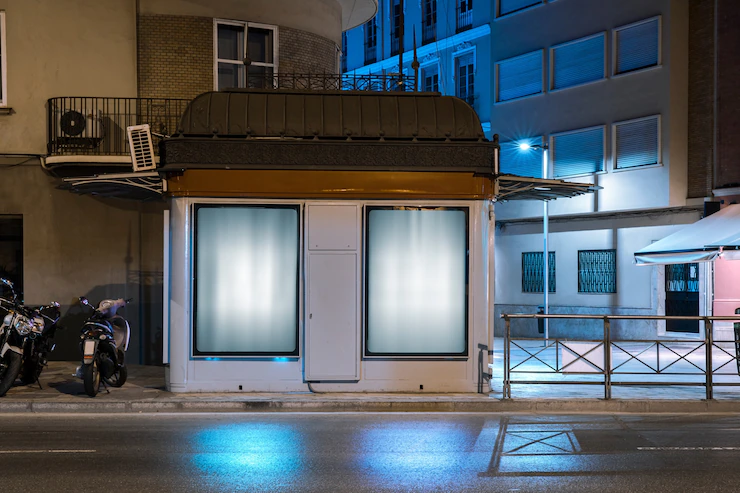By Vikrant Rana and Rupin Chopra
Introduction
Outdoor media is any kind of advertising that directly reaches out to consumers specifically when they are not at home. Made to grab attention when people are out and about, this form of media is also known by the name of OOH (Out-of-Home) advertising. It is a common standard of advertising to the general public. There are various modes of advertisement under this category of advertisements such as billboards, posters, point-of-sale displays, transit advertising, etc. The mode of advertising, however, may be digital or static based on the preference of the advertiser.
Evolvement in technology has led to changes in advertising styles and modes hence, bringing in the adoption of new methods and practices of advertising which, thus, calls for new rules and policies to govern the practices, registration and licenses of agencies engaged in such types of advertisements.
The Delhi Outdoor Advertising Policy, 2017
The Delhi Outdoor Advertising Policy, 2017 has been designed and finalized as per the directions of the Hon’ble Supreme Court by the Environment Pollution (Prevention and Control) Authority, in high consideration of road safety and the potential danger that the hoardings on road pose to drivers. Its concern is driven by safety of road users and based on this the agency has stressed that:
- No advertising device has to be placed anywhere under any category which will obstruct the free movement of road users;
- The distance between two advertisement devices should not be less than 100 m on highways and main city roads.
Permission Criteria for LED Advertising Devices
The Policy has laid down specific permission criteria for the advertising devices within the jurisdiction of the Municipal Corporation of Delhi to ensure a high level of safety on road for drivers, for which the advertisement devices have been categorized into 4 categories where large-format advertisements such as Billboard, Uniboard and Variable Messaging Devices such as LED/LCD Screens have been kept under category 1, followed by advertisements mounted in public amenities under category 2, fleets and transport related infrastructure under category 3 and advertisement devices for self-advertising in commercial areas under category 4.
Specific requirements for Variable Message Advertising Devices (LED, LCD Screens)
In order to reduce the frequency and extent of movement and movement of colour change within a display certain limitations have been imposed on display of LED/LCD Screens:
- The LED/LCD signage should preferably be installed in the market area, commercial hubs and should not face the vehicular movement of the traffic on major roads, that is, roads having Right of Way more than 100 feet;
- Each screen should have a minimum display period of 8 seconds. The time taken for consecutive displays to change should be within 0.1 seconds;
- The complete screen display should change instantaneously;
- Sequential message sets are not recommended;
- The time limits should be reviewed periodically.
Procedure and terms for grant of permission
The Policy specifically lays down the procedure for grant of permission for erection, exhibition, fixation, retention or display of advertisement-
- An application by the applicant desiring to erect, exhibit, fix, retain or display has to be sent to the Commissioner;
- The Commissioner or any person authorized by him shall grant, refuse, renew or cancel the permission in accordance with the Act and Bye-laws made under the Act after conducting inspection within a period of 30 days from the date of application;
- If any advertisement fees/penalty/interest is not paid within stipulated time after the demand notice, the same shall be recovered as arrears and the permission shall be deemed to have been terminated;
- Contracts of outdoor advertisement will be given for a maximum period of 3 years.
Self-signage of Display of LED/LCD Screens
The Policy sets up the standards for self-signage for commercial advertising and self-signage through LED Screen/Light, Neon Light and LCD Screens. There is a prescribed fees for the self-signage, not exceeding beyond the prescribed area (2.5 sq. m.). In cases where the self-signage exceeds the prescribed limits, the business owners shall be made liable to pay a fees for the same.
An exemption has been made in case of self-signage through LED Screen/light, Neon Light and LCD Screen where the maximum size of display shall be allowed up to 200 sq. ft.
The website of Municipal Corporation of Delhi has recently launched the portal for online application for display of self-signage. Though the rules for display of LED Screens were already there, the online services provided on the MCD portal have been newly incorporated only in 2022. The rate of advertisement fee under section 430 (2) of the Delhi Municipal Corporation Act, 1957 has been fixed by the Corporation for self-signage/self-branding where the permission is granted instantly on self-certification basis.
Penalty for Non-compliance
- Any contravention of the provisions of the Act, bye-laws and terms of the Policy shall be punishable with fine/penalty as decided by the Commissioner of the respective Municipal Corporation;
- Any unauthorized/illegal Advertisement will attract penalty for each day, the quantum of such penalty shall be decided by the Commissioner, SDMC/North DMC/EDMC/Chairman, New Delhi Municipal Council under their jurisdictions.
- For continued contravention, the Commissioner shall get the advertisement dismantled, taken down, or spoiled, defaced or removed.
- Any other action including blacklisting of agency or advertiser may be taken as decided by the Commissioner of Municipal Corporation.
Conclusion
The Policy read with the Delhi Municipal Corporation Act, 1957 has been enacted to regulate and govern the outdoor media advertisements with the greater purpose of ensuring road safety, asthetics and revenues for public good. Accordingly, all companies using LED self-signages for their commercial establishments/shops are required to obtain permission from New Delhi Municipal Corporation to avoid imposition of penalties.
[1] Section 143 of the Delhi Municipal Corporation Act, 1957
Renewal of Health Trade License in Delhi- India


